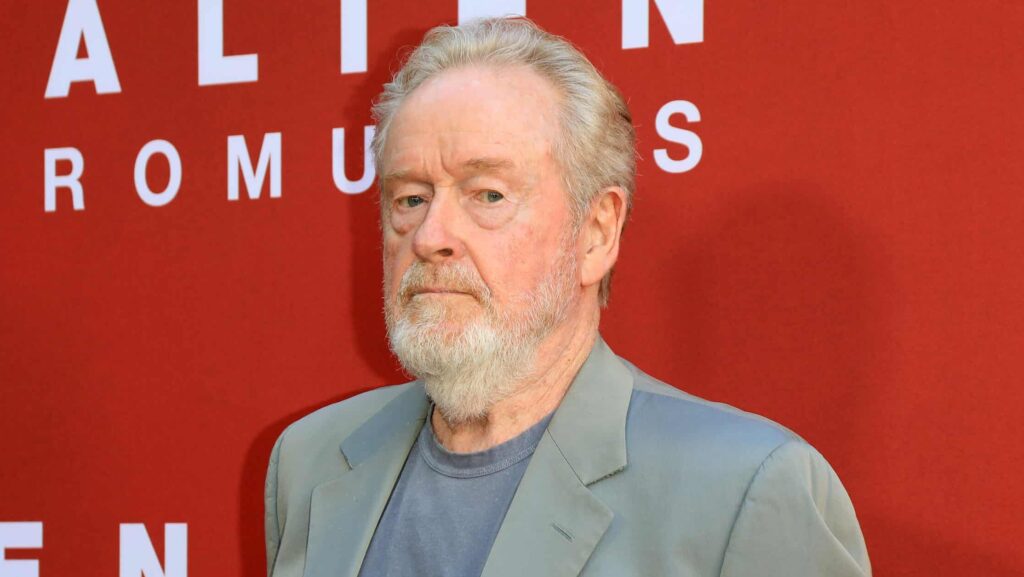Summary:
-
Ridley Scott reflects on the impact of Pauline Kael’s scathing review of Blade Runner and how it shaped his attitude towards criticism.
-
Despite the hurtful critique, Scott turned Kael’s review into a teaching tool, emphasizing the importance of self-validation in filmmaking.
-
Scott’s career, from Alien to Gladiator II, showcases his resilience in the face of criticism and his commitment to pushing cinematic boundaries.
Ridley Scott reflects on the harsh review of Blade Runner and the valuable lesson it taught him about criticism. The 86-year-old director opened up about a scathing review from film critic Pauline Kael, which left a lasting impact on him nearly 40 years after the film’s release.
Scott recalled Kael’s New Yorker review of Blade Runner, describing it as a “four-page destruction” that nearly crushed him. “Pauline Kael killed me stone dead with her Blade Runner review,” Scott told The Hollywood Reporter. “I never met her. I was so offended.” Despite the hurt, Scott said the review ultimately became a teaching tool. “I framed those pages and they’ve been in my office for 30 years to remind me that there’s only one critic that counts, and that’s you,” he added. “I haven’t read critiques ever since.”
Scott’s approach to handling both positive and negative reviews is rooted in his belief that neither should dictate a filmmaker’s sense of self. He acknowledged that positive reviews could cause one to develop a “swollen head,” while negative reviews could bring a filmmaker down to a point where it becomes “debilitating.” Despite receiving acclaim throughout his career, Scott has never won an Academy Award for Best Director, despite being nominated three times for Thelma & Louise, Gladiator, and Black Hawk Down.
When asked if he felt any of his films deserved to win an Oscar, Scott answered, “Not really. There’s always a reason why not. I don’t know how the award system works other than we are voted on by our peers, right?” He criticized the foundation of the Academy Awards, pointing out that the voters are not necessarily directors but “19,000 ‘peers’ in the Director’s Guild.”
“I don’t do a film thinking I’m going to get an Academy Award,” Scott said. “I haven’t been to the awards since Gladiator.”
The critical reception of Blade Runner, in particular, still resonates with Scott. Kael’s review was particularly dismissive, with the critic claiming that Scott “doesn’t seem to have a grasp of how to use words as part of the way a movie moves” and labeling Blade Runner a “suspenseless thriller.” She also criticized Scott’s visual style, writing, “With Scott, it’s just something unpleasant or ugly.”
ADVERTISEMENT
Despite the early criticism, Blade Runner has since been re-evaluated and is now considered one of the most influential science fiction films of all time. Scott himself has revisited the movie, which he claims was misunderstood in its early days. In a 2023 interview with Total Film Magazine, Scott reflected on the impact of the film, saying, “You’ve got to learn, as a director, you can’t listen to anybody. I knew I was making something very, very special. And now it’s one of the most important science-fiction films ever made, which everybody feeds off. Every bloody film.”
He also expressed frustration with critics who dismissed the film’s originality at the time. “I hadn’t seen Blade Runner for 20 years. Really. But I just watched it. And it’s not slow. The information coming at you is so original and interesting, talking about biological creations, and mining off-world, which, in those days, they said was silly. I say, ‘Go f— yourself.’”
Scott’s career spans decades, with his directorial debut in 1977 with The Duellists followed by the groundbreaking 1979 horror sci-fi film Alien. Despite the initial backlash from critics, Blade Runner has found its place in cinematic history, influencing countless filmmakers and establishing Scott as one of Hollywood’s most iconic directors.
Now, as Scott prepares for the release of Gladiator II, the sequel to his 2000 Academy Award-winning film Gladiator, he continues to demonstrate his signature approach to filmmaking. The highly anticipated sequel, starring Paul Mescal, Pedro Pascal, and Denzel Washington, is set to hit theaters on November 22, 2024.
In an exclusive interview with PEOPLE in August, Scott teased the upcoming film, stating, “It’s as good as the first one. I didn’t say better. It’s as good.” Fans of the original Gladiator will no doubt be eager to see how Scott brings the story back to life with a fresh perspective, further solidifying his legacy as a filmmaker who perseveres in the face of criticism and continues to push the boundaries of cinema.









